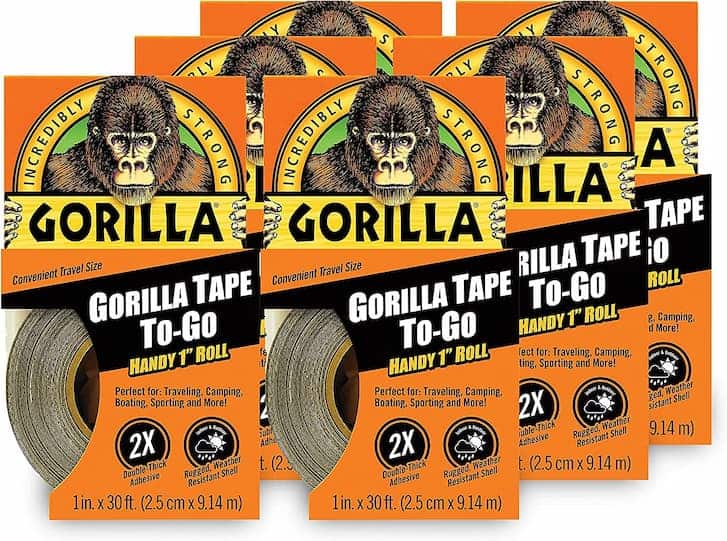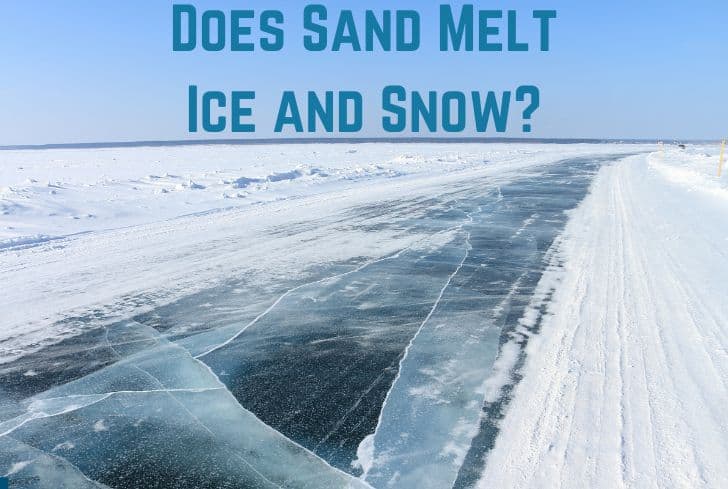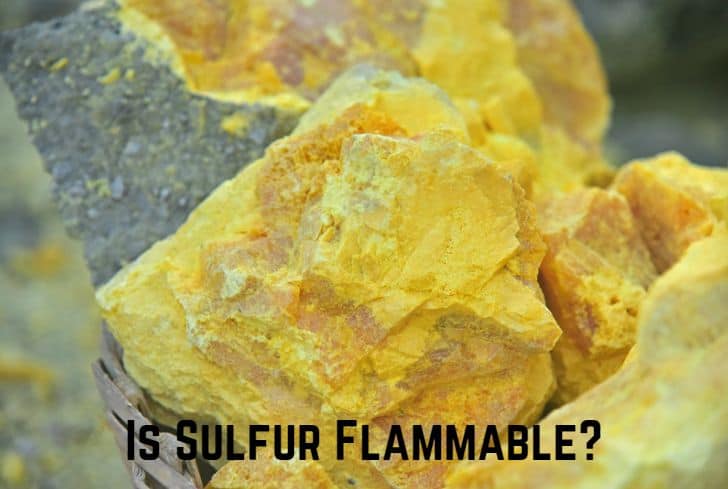Is Salt Flammable? (Find Out Now)
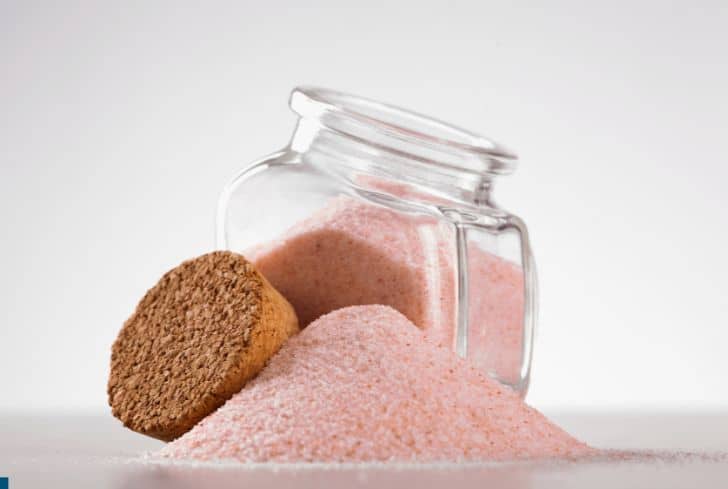
Salt is perhaps the most widely used ingredient in cooking. It improves the taste of every dish by bringing out the flavors of other ingredients, and, in limited quantity, it is also essential for health. A kitchen or a dining table is almost incomplete without a salt shaker.
But have you ever wondered if this ubiquitous cooking product is dangerous? What happens when we burn the salt? In this article, we are going to look at exactly these questions. We will look at the composition of salt to understand its relationship with fire. Then we will lead to related questions about salt water.
Can Salt Burn?
No, salt does not burn. It can melt at an extremely high temperature (800°C/1472°F), but this is unlikely to happen in everyday surroundings. Salt is made up of sodium and chloride, which come together to form a highly reactive bond. This bond cannot be broken unless subjected to a high temperature, which is why salt does not burn.
In chemistry, salt is a chemical compound that consists of an “ionic assembly of positively charged cations and negatively charged anions, which results in a compound with no net electric charge”.
The most common example of salt is table salt, which combines positively charged sodium ions with negatively charged chloride ions. Given the ubiquitous use of salt in cooking, and its storage near appliances like ovens, gas stoves, etc., it is natural to ask if it is flammable.
Well, the answer is no. The constituents of salt, sodium and chloride are joined together in a highly reactive bond. Their bond can only be broken through an extremely high temperature, which you are unlikely to witness in the everyday environment.
Not only does salt not burn, but it can also be used to extinguish the fire, which is what we will discuss later.
Is Himalayan Salt Flammable?
No, Himalayan salt is not flammable. Himalayan salt is rock salt (halite) found in the Punjab region of Pakistan. Just like table salt, Himalayan salt does not burn because its constituents, sodium and chloride, are held together in a highly reactive bond. This requires an extremely high temperature to break, which is not possible in everyday surroundings.
Himalayan salt exhibits pinkish hues due to the presence of trace minerals. It is used as a food additive and is an alternative to refined table salt. People also use it in decorative lamps, spa treatments, and food presentations. Some also believe that Himalayan salt comes with health benefits, although these claims are unfounded.
There are several other kinds of salts, such as bath salts (used in spa treatments), salt scrubs (salt added to creams to create exfoliating scrubs), cleaning salts, etc. But like table salt, none of these salts is flammable. So, you don’t have to worry about their fire safety.
What is the Melting Point of Salt?
The melting point of salt is 800°C or 1472°F. To melt, salt requires an extremely high temperature, which is unlikely to occur in an everyday setting. This is because the sodium and chloride ions form a highly reactive bond to create table salt, which cannot be broken unless subjected to a high temperature.
At 800°C, table salt turns into a molten salt, which has a variety of uses. Molten salt mixtures are used as baths in devices called for alloy heat treatments such as martempering and annealing of steel. They are also used for surface modification of alloys.
Does Salt Extinguish the Fire?
Yes, salt extinguishes fire. This is because salt is an inflammable substance that doesn’t catch fire. Moreover, when poured in large quantities over the fire, it will smother it by cutting off the supply of oxygen and effectively extinguish it. However, it is unlikely that one will have enough quantity of salt to use it as a firefighting device.
Salt does not burn because its constituents, sodium and chloride, are joined together in a highly reactive bond. This bond cannot be broken unless an extremely high temperature is introduced. Because salt is inflammable, it can also extinguish the fire by cutting off the fire supply.
This is quite similar to throwing sand or a fire blanket over the fire. They all essentially work by cutting off one of three (oxygen, heat, fuel) main things required for fire: oxygen. But, in a real-life situation, it is unlikely that you will have enough salt to put out anything other than a small fire.
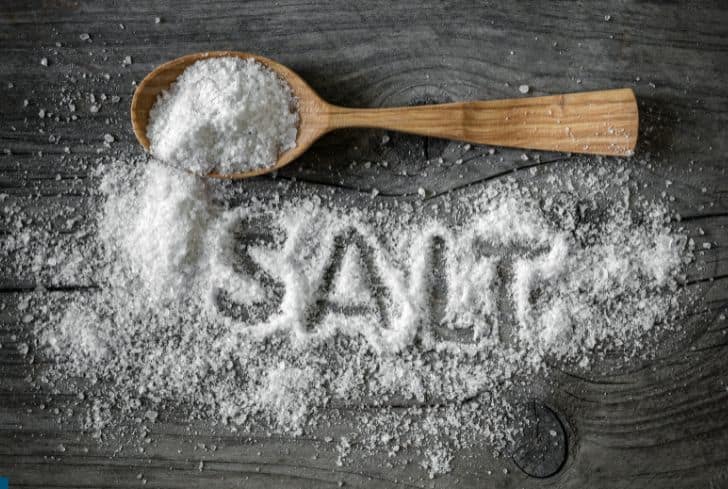
What Happens When You Burn Salt?
Salt does not ignite when you introduce an ignition source to it. This is because its constituents, sodium and chloride, are joined together in a highly reactive bond that doesn’t break until there is an extremely high temperature. In that case, the salt melts. Salt also gives the fire a yellowish color.
Although salt does not burn, it still affects the color of the flame. This is because of a chemical reaction caused by one of the constituents of salt, sodium.
When salt is put into a flame, the valence shell electron (electron in the outer shell of an atom that can participate in a chemical bond if the outer shell is not closed) of sodium is excited to higher levels of energy absorption.
When the excited electron returns to its ground state, it releases the additional energy in the yellow region of the electromagnetic spectrum. This is how sodium gives a yellow color to the flame. Different elements can give different colors to flame: Lithium brings out crimson red color, potassium gives pale violet color, etc.
However, this does not mean that the salt was burning. If, after the fire has burnt down, you inspect the debris, you will find that salt crystals are left completely intact amongst the ashes.
This unique property of salt is what leads people to believe that salt has some magical properties. It is believed that inside a circle made up of salt, evil spirits (from the fiery depths of hell) cannot enter, just as fire cannot break through salt.
Is Table Salt Flammable?
No, table salt is not flammable. This is because sodium and chloride, the constituents of salt, form a highly reactive bond, which cannot be broken unless subjected to an extremely high temperature. Salt has a melting point of 800°C, which is unlikely to be witnessed in an everyday environment.
Because salt does not burn, it is perfectly safe to keep it around the kitchen. It’s good that the most widely used cooking ingredient is not flammable, otherwise, it could have involved a lot of potential fire safety hazards.
Is Saltwater Flammable?
No, saltwater is not flammable. Just like freshwater, it can also be used to extinguish a fire. On campfires and parties near the beach, seawater can come in handy to prevent any fire hazard. Salt itself is not flammable and can smother a fire by cutting off the oxygen supply and putting out the fire.
Sea water can extinguish water just like fresh water. But still, firefighters cannot use it because the salt content of the water can rust their equipment and tools.
Rusting occurs due to a process known as oxidation when metal atoms lose electrons and form ions. When we add salt (containing ions), it accelerates the rusting process by allowing electrons to move freely from iron to oxygen.
Is Epsom Salt Flammable?
No, Epsom salts are not flammable. Epsom salt is another name for magnesium sulphate (MgSO4), and it is a household chemical with many traditional uses, including bath salts. Like table salt, Epsom salt is not flammable. It has a very high melting point (1124°C), which is unlikely to be seen in everyday environments.
The primary use of Epsom salt is in agriculture, where it is used to treat soils deficient in magnesium, which is an essential plant nutrient.
Is Heating Salt Dangerous or Explosive?
No, heating salt is not dangerous at all because salt is not flammable. It is made up of sodium and chloride, which are held together in a highly reactive bond that cannot be broken unless subjected to an extremely high temperature. Salt gives the flame a yellowish color, but other than that, it does not change at all.
Salt is the most widely used ingredient in cooking. It is also used for food preservation because it reduces the water activity of foods. Water activity refers to the amount of unbound water in food that is available for chemical reactions and microbial growth. By reducing this, salt effectively reduces microbial growth.
Two very important roles—cooking as well as preserving—are played by salt. Luckily, it is not flammable, so for both these roles, it is perfectly safe for us. Its location near appliances like gas stoves, ovens, etc. poses no safety hazard. Heating salt is not dangerous or explosive in any way.
Conclusion
In this article, we have discussed whether salt is flammable or not. We began by looking at the chemical composition of salt, which is made up of sodium and chloride held together in a highly reactive bond. Because of this, salt does not burn and has a very high melting point (800°C). So, the most ubiquitous cooking ingredient is perfectly safe from fire hazards.

